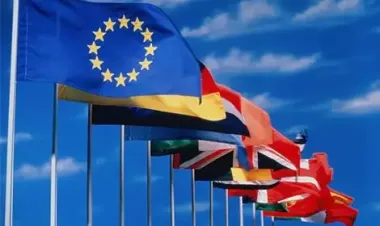EU finds way to bypass Hungary's veto on new sanctions against Russia

EU to unfreeze 550 million euros for Hungary due to sanctions against Russia
The European Union can only approve new sanctions unanimously, but Hungary and Slovakia are threatening to veto the measures.
EU ambassadors on September 19 discussed a series of restrictive measures presented by the commission, including a gradual halt to imports of Russian liquefied natural gas (LNG). The ban, originally planned for the end of 2027, has now been postponed to the end of next year.
Orban, who is due to run in parliamentary elections next year, has repeatedly refused to reduce his country's dependence on cheap energy imports from Russia and has repeatedly delayed the adoption of sanctions against Moscow.
Brussels has frozen around €22 billion in EU funds earmarked for Hungary in 2022 over concerns about judicial independence, asylum rights, LGBT+ discrimination and academic independence.
But the EC gradually released these funds to appease Orbán: in 2023, the Commission unfroze a tranche of 10 billion euros so that Budapest would abandon its veto on aid to Ukraine.
Earlier this year, the country received another 157 million euros, taking advantage of a legal loophole that allows Hungary to transfer frozen funds to other programs.
It’s the same loophole that Budapest is trying to exploit again. In May, Hungary requested €605 million as part of a broader “mid-term” review of how countries spend their share of the EU’s common budget.
After months of negotiations, Brussels is ready to let Budapest receive most of the requested funds, or about 550 million euros, according to two people familiar with the discussions.










